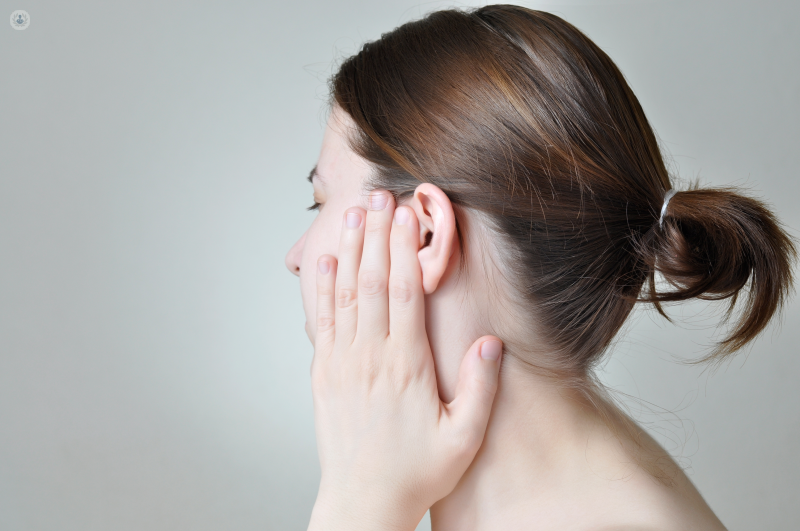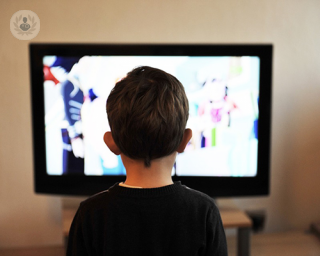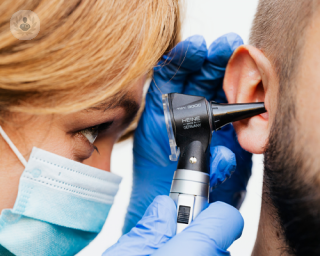Glue ear
Mr Kiran Varad - Otolaryngology / ENT
Created on: 04-28-2017
Updated on: 05-03-2023
Edited by: Carlota Pano
What is glue ear?
Glue ear is where the empty middle part of the ear canal fills up with fluid (usually mucus). This can cause temporary hearing loss. Usually, the condition clears up within three months, but it’s advisable to see a doctor about any hearing problems. Glue ear can affect both ears at the same time.

Glue ear symptoms can include:
Glue ear is much more common in children, but adults usually have the same symptoms.
Your child may be struggling to hear if they often:
- Are difficult to understand
- Are speaking more quietly or loudly than usual
- Ask people to repeat what they say
- Turn up the volume on electronic devices or asks for it to be turned up
- Become distracted when people are talking
- Seem irritable or tired because it’s harder to listen
One of our specialists can usually diagnose glue ear by looking for inside fluid inside the ear. They'll often use a small scope with a magnifying glass and a light. This should not be painful.
If your child has had glue ear for more than three months, they may be referred to a specialist for hearing tests.
Treatment for glue ear
Glue ear is not always treated, and will usually get better on its own. It often clears up on its own within three months.
Your child may still be monitored for up to a year in case the symptoms change or get worse.
You may be advised to try nasal balloon auto inflation while waiting for symptoms to improve. Auto inflation can help fluid in the ear to drain.
It is done by either of these methods
- Holding the nostrils closed whilst swallowing
- Blowing up a special balloon using one nostril at a time
If glue ear causes an ear infection, you may need antibiotics.
Does my child need hospital treatment for glue ear?
Your child may be referred to a specialist in a hospital if:
- Glue ear symptoms are affecting the child’s development and learning.
- They already had severe hearing loss before glue ear.
- They have been diagnosed with a cleft lip and palate, or with Down's syndrome. If they have these conditions, it can mean glue ear is less likely to get better by itself.
The two main treatments are temporary grommets or hearing aids.
On rare occasions, surgery may be recommended to remove some glands called adenoids which are located at the back of the nose, above the roof of the mouth. This procedure is known as an adenoidectomy.
The specialist in the hospital will help you decide on the best treatment option.
Grommets for treating glue ear
Grommets are small temporary tubes that are placed in your child’s ear during surgery. They keep the eardrum open and help drain fluid away.
The grommet eventually falls out within six to 12 months as your child’s ear gets better.
Book an appointment with one of our specialists if you or your child are having hearing problems. It may be glue ear or another condition.

















